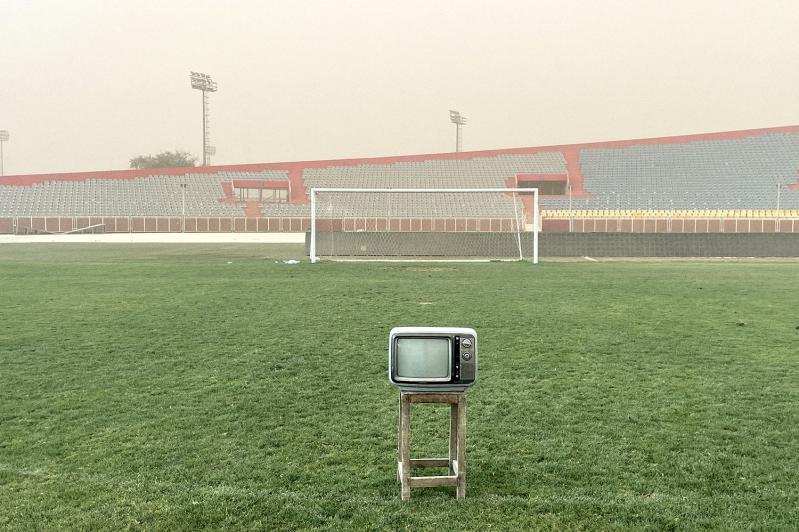The director Lucian Read might have spent more time embedded with United States troops during the Iraq War than anybody else, he said, thinking back on his time overseas as a photojournalist.
In his time abroad, however, there was one story he “did not fulfill his journalistic duty to tell.”
Now, Mr. Read is bringing the story of the Iraq national football team’s improbable victory in the 2007 Asian Cup to the Hamptons International Film Festival, where his 87-minute documentary “Lions of Mesopotamia” will be screened on Oct. 13 at 4:45 p.m.
“I rarely spent any time talking to — telling the stories of, focused on — Iraqis,” Mr. Read said of his time in the conflict zone. “When I was younger and very excited about war, that didn’t seem like a big deal or a failing. As I’ve gotten older, I’ve come to understand that that was an incredibly important story.”
With a cast of players, pundits, journalists, and politicians, Mr. Read explores the “depths of sadness” and “the highest exhilaration” with his film, which has been in the works since 2021.
The story begins in 2000, when the Iraqi youth football team — composed largely of the same group as the 2007 team — prepares to take on Iran in an important semifinal match in the under-20 Asian Cup. As recently as 1988, the neighboring countries had been at war.
The teenagers enter the game with the threat of torture from the Saddam Hussein regime looming over them, should they lose. The young men ended up defeating Iran before taking down Japan in the final to win the tournament.
National, regional, and global politics weave in and out of the film as the players share their personal experiences with war and sectarian violence. Each member of the 2007 team was touched by war, and each knew someone who had perished.
“I will speak ill about the motherfucker Bush,” Nashat Akram, a star of both the midfield and the film, offered on the topic of politics. At one point, a player said he refused to play in front of the former president altogether.
The filmmakers juxtapose this refusal with American propaganda advertisements from the era boasting of a freer world following the invasions of Iraq and Afghanistan.
While Mr. Read does not speak Arabic, he elected to shoot the film primarily in that language with the help of a translator. Finding one posed issues, though. When players relayed long anecdotes to interpreters, Mr. Read said, sometimes they sounded like a “poet,” while other times like a “hillbilly.”
“Most of the players actually do speak English of varying ability, but this is an Iraqi story, and I was not going to ask these national heroes to tell their story, frankly, in the language of the occupier,” he said.
The players on the Asian Cup team in 2007 represented an array of religious, cultural, and ethnic backgrounds within the nation. Many Iraqis — particularly those old enough to remember the tournament — view the victory as the “best thing that ever happened” to their country, Mr. Read said.
As the tournament victories piled up, Iraqis poured into the streets to celebrate back home, despite the threat of violence. After a semifinal victory over South Korea, car bombers killed 50 celebrating Iraqis.
“Today is the first day of mourning for one of my relatives who passed away,” an unidentified woman said on tape after a victory, “but I still came out to celebrate the victory that our team brought to all Iraqis.”
While the film mainly looks at the Iraqi perspective, Mr. Read needed a “voice of the Americans.” Paul Bremer, the administrator for the provisional government during the war, stepped in to fill that role by largely defending his leadership tenure.
As for the director, Mr. Read freelanced in Iraq from 2004 to 2008, sending his work mainly to Newsweek, in addition to outlets such as the Los Angeles Times and The New York Times. After his time in Iraq, he went to Afghanistan, where he stayed until 2011.
The film was largely shot in Erbil, a city in Iraqi Kurdistan located at the northern end of the country. Some of the interviews took as long as 17 hours to complete, including that of Mr. Akram.
“It’s a classic Cinderella story,” Mr. Read said, “and also, to me, rather than a football story about Iraq, it’s an Iraqi story told through the lens of football.”




